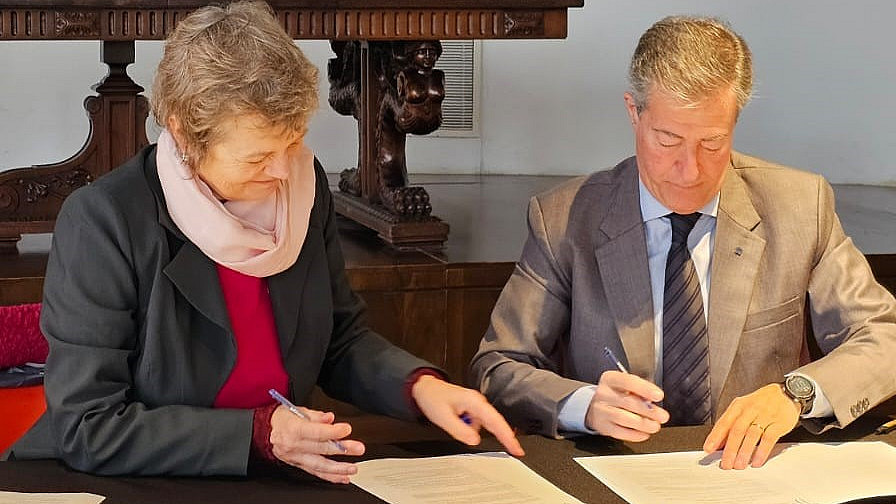This page contains automatically translated content.
University of Kassel intensifies exchange with Argentinian universities
 Image: University of Kassel.
Image: University of Kassel.A delegation from Kassel led by University President Prof. Dr. Ute Clement, who is currently in Argentina, has recently reached agreements with universities in Buenos Aires and Viedma (Río Negro province).
The aim of the scientific exchange was to initiate joint and third-party funded research projects in the fields of industrial ecology and agroecology. Industrial ecology refers to industrial cycles that are based on natural ecosystems and in which companies exchange materials with each other. Residual materials from one company can then become raw materials for another. One example is textile waste from shoe production, which is used as the basis for building materials. Agroecology, on the other hand, aims for an agriculture that is also oriented towards ecosystems. This can mean, for example, that many different crops are grown in fields that benefit each other.
A Memorandum of Understanding was also signed with the Universidad Nacional de Rio Negro (UNRN) with the aim of creating a joint, binational Master's degree course in agriculture, ecology and society. The first students - five each from Germany and Argentina - are expected to start in 2026. The UNRN researches and teaches in the fields of food production and agriculture, among others. It has around 10,000 students and campuses in various cities.
The President of the University of Kassel initiated an easier exchange of students with the Universidad Nacional de San Martín in Buenos Aires (UNSAM). UNSAM has almost 25,000 students and a wide range of subjects from nanotechnology to sustainability.
With around 22,000 students, the University of Kassel is a medium-sized German university. Its research focuses on sustainable transformations and materials of the future. It is renowned throughout Europe for its agricultural sciences with an ecological focus. Since 2023, it has had a unique center for sustainability research, the Kassel Institute for Sustainability, which focuses in particular on the sustainability goals of the United Nations. The center is also developing new degree programs in this thematic environment.
Research on Latin America is also prominent: since its foundation in 2017, the "Centro de Estudios Latinoamericanos (CELA)" has bundled Latin American research in Kassel. The university plays a key role in the transnational research network Centro de Estudios Latinoamericanos Avanzados (CALAS). To date, there have been collaborations with four Argentinian universities. Last winter semester, 103 students from Latin America were enrolled in Kassel, six of them from Argentina. Recently, the University of Kassel has been providing international Master's students with special support in gaining a foothold in the German job market after graduation.
"We have been intensifying our relationships with universities in Argentina and other Latin American countries for years," commented Ute Clement. "Researchers and students from Latin America and Germany look at the numerous global challenges from different perspectives. It is important to exchange ideas and work together across continents, because many topics, from climate protection to peace research, can only be meaningfully addressed together." With their research topics, UNSAM and UNRN were a good fit for the University of Kassel.